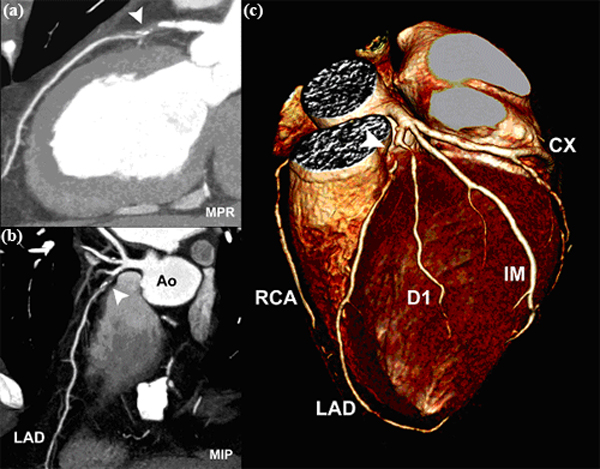CT Coronary Angiography (CTCA) has become a valuable new tool in the diagnosis of coronary artery disease (CAD) as reported in a new study (read my comments). CT or CAT scans have been around for a long time but were not capable of providing useful images of of small moving structures such as coronary arteries. Now that new technology is available, CTCA can be used quickly and at a much lower cost, particularly in patients where the diagnosis is uncertain.
CTCA will be particularly useful to Family and ER Doctors in patients where the diagnosis of Angina Pectoris and CAD is suspected but not confirmed with other tests.
Given the high percentage of unnecessary cardiac catherizations performed yearly, it will provide doctors with another screening tool to either identify or eliminate patients for further testing and (expensive) consultations with cardiac specialists,
Dr T


Comments 2
Thanks Dr. T for pointing out an interesting article. I’ll read it and see if it might be appropriate to present to my resident’s group at the VA.
My question is, do you think this article is really revolutionary? At least at my hospital, we have some ability to have CT coronary angios, but I think it’s more used for low prob chest pain rule out (with patients with cardiac risk factors).
What’s different about this article from all the others? Do you think it might actually change ER management of chest pain?
Dear Dr Smith,
I believe that the results reported in this article empower physicians to quickly analyze patients with symptoms and findings suggestive but not conclusive of CAD.
In this subgroup of patients CTCA appears more accurate than a stress test and obviates the need to schedule a cardiac consultation and cardiac catherization. Think of all the time and money you would save!
I would schedule a CTCA in patients with vague or atypical symptoms, probably in conjunction or instead of a stress test.
Remember that most cardiac catherizations are performed as elective procedures and that 60% of these will prove to be negative anyway!
It is cheaper and can be ordered in the ER or by a PCP. As a cardiac surgeon, I would use CTCA to evaluate patients for graft patency.
Dr T